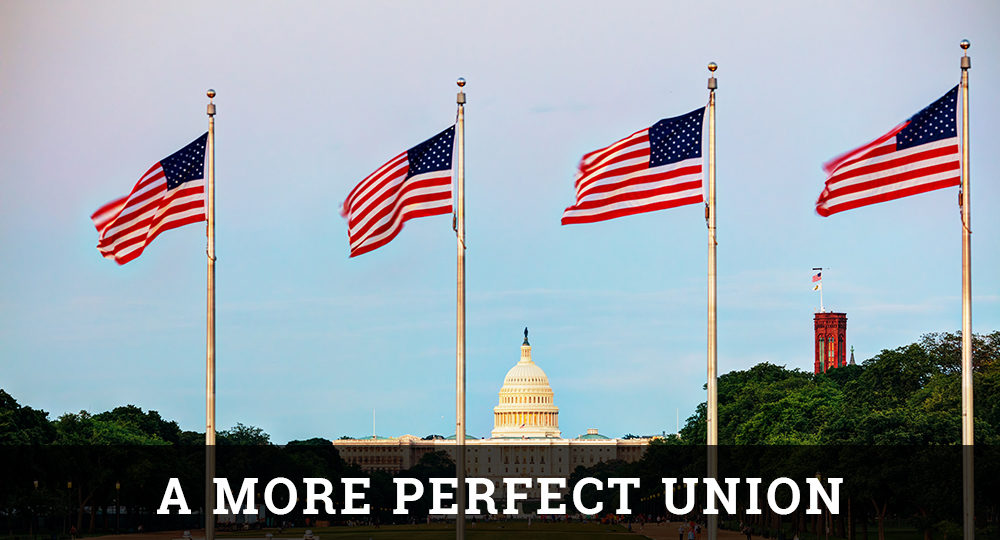The Tax Man Cometh
A recent deal between the Internal Revenue Service (IRS) and an anti-faith activist group promises to threaten the religious free-speech rights of churches around the nation.
In July 2014, the Freedom From Religion Foundation (FFRF) announced the IRS has settled a lawsuit the FFRF filed against it by agreeing to step up its investigation of churches and religious organizations suspected of crossing over the IRS line that separates permissible and impermissible activities.
It is permissible for religious organizations to take a public position on certain social and political issues, like abortion, traditional marriage, and religious freedom; but it is impermissible to endorse or oppose candidates for political office.
In reality, the line between these activities is extremely blurry and confusing due to how the IRS interprets its own rules.
The problem is compounded by the fact that it is sometimes difficult for a church or nonprofit faith group to advocate fully for a biblical position without explaining the issue’s background, which often involves mentioning political candidates. That is where the problem comes in.
Other religious-liberty attorneys and I have long proposed scrapping the IRS prohibitions altogether, allowing religious groups to speak freely about political candidates and the issues.
The IRS settlement with FFRF could portend trouble: One of America’s most powerful governmental agencies is taking policy guidance from an organization known for its aggressive disdain of Christianity.
I have occasionally heard some Christians say churches and faith groups should stop complaining about such developments and either let the IRS have its way or refrain from claiming tax-exempt status. That, however, is a false choice for two reasons: One is constitutional; the other, biblical.
Constitutionally, the First Amendment religion clauses were designed to protect people and organizations of faith from the overreaching power of the federal government. In one tax case, the U.S. Supreme Court upheld the idea of tax-exempt status for religious groups, stating the purpose was not to grant them special favor but to safeguard their free exercise of religious rights to protect them from the potentially abusive power of the IRS.
Such protection is clearly needed. The news has been full of accounts of the IRS harassing conservatives and Christians simply because of their beliefs.
Biblically, we find direction from the Gospel of Luke, which records how the agents of the scribes and chief priests questioned Jesus about taxes, hoping to put Him on the horns of a dilemma. The men who confronted Christ were actually “spies who pretended to be righteous” (Lk. 20:20). They were trying to “seize on His words, in order to deliver Him to the power and the authority of the governor” (v. 20).
“Is it lawful,” they asked, “for us to pay taxes to Caesar or not?” (v. 22). The tax was the Roman poll tax, a census tax of one denarius per person. Because it symbolized Rome’s iron grip over the Jewish citizenry, the Jewish people hated it in particular.
If Jesus supported the tax, His enemies could have used His position to stir up the masses against Him. If He opposed it, the pro-Roman Herodians could have reported His stance to the Roman governor as a form of insurrection.
After pointing out that the denarius coin bore Caesar’s image, Jesus gave His well-known response: “Render therefore to Caesar the things that are Caesar’s, and to God the things that are God’s” (v. 25).
Though the question was based on evil motives, Jesus’ answer was based on truth. Our Savior teaches us to know the difference between the obedience we owe to the state and the ultimate obedience we owe to the Lord.
Taxes should be paid when they are owed. But there is nothing wrong with a church or Christian organization using the benefits of the tax-exemption rules that the Supreme Court has reminded us are designed to help insulate religious ministries from improper governmental interference.
Tax issues can sometimes be a subterfuge for a mean-spirited attack on people of faith.
We must watch carefully what the IRS will do in the wake of the dangerous agreement it has struck with the Freedom From Religion Foundation.








